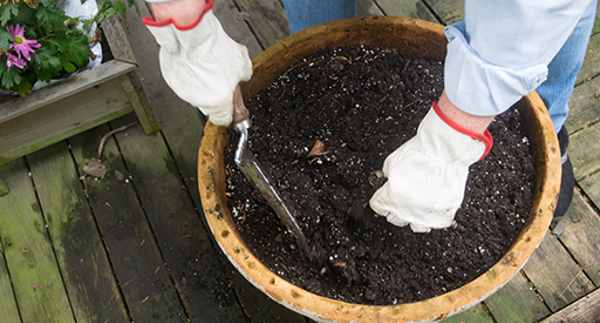
As we spend time potting up and planting out, it's timely to remember best practices when handling compost and garden mixes to avoid potential health issues in the garden.
By following these simple precautions, you can enjoy your gardening while keeping yourself safe.
What is Legionnaires Disease?
- An illness that has symptoms resembling pneumonia.
- It often begins with mild cold-like and flu symptoms, potentially developing into a more serious respiratory condition.
- Common symptoms include loss of appetite, muscle pain, headaches, fever, and a dry cough.
- Legionnaires is caused by a bacterium that naturally exists in the environment.
- It can be contracted by inhaling dust or water vapour from growing media or soil, including potting mix, compost, mulch and garden soil.
Who Might Be at Risk?
- Individuals with weakened immune systems.
- Those recovering from cancer treatment or surgery, people with asthma, those susceptible to lung conditions, smokers, and the elderly.
How is Legionnaires Disease Treated?
- Treatment typically involves hospitalisation and intravenous antibiotics.
- The illness usually responds well to treatment.
Tips to Reduce the Risk of Legionnaires
- It is recommended to wear a dust mask and gloves when handling compost and potting mix.
- Open bags of compost and potting mix in a well-ventilated area, keeping them away from your face, and gently dampen the mix before use.
- Use a low-pressure mist spray when watering gardens, potting mix, and compost.
- When potting plants, dampen the mix to minimise dust.
- Remember to wash your hands after handling potting mix, compost, and garden soil.
For more information go to http://www.worksafe.govt.nz/worksafe/information-guidance/all-guidance-items/legionnaires-disease
Post a comment
Safe handling of soil and potting mix Comments
Thanks for posting this info on potting mix etc I will be much more careful with my potting mix in future.
Jennifer Smiles